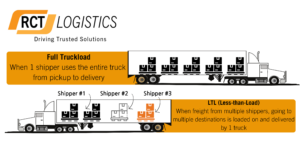AI in Freight Logistics: We Are Slow Adopters

Regarding AI in freight logistics: we are slow adopters. About a year ago we started to see the use of Artificial Intelligence (AI) in the logistics industry. We even wrote a short blog on the subject. We can now say that AI is here to stay. The integration of AI will eventually revolutionize the way goods are transported, making operations more efficient, cost-effective, and sustainable. Software leaders like Oracle and others are developing AI tools at a rapid pace. However, like any technological advancement, AI also presents challenges and potential drawbacks. We are tentatively, incorporating AI tools to benefit our customers and carriers without losing our relationship-focused customer experience. As we explored the new technology, we dove into the pros and cons and thought we would share our impressions.
Pros of AI in Freight Logistics
- Enhanced Efficiency: AI can optimize routes, reduce idle time, and improve vehicle utilization, leading to significant time and cost savings. Predictive analytics can also help anticipate delays and disruptions, allowing for proactive measures.
- Improved Visibility: AI-powered tracking systems provide real-time visibility into the location and status of shipments, enabling better communication and coordination between stakeholders.
- Increased Automation: AI can automate tasks such as documentation, customs clearance, and yard management, reducing manual labor and errors.
- Enhanced Safety: This one is a bit big brother for us but AI-driven systems can monitor driver behavior, detect fatigue, and prevent accidents, improving overall safety in the industry.
- Improved Sustainability: AI can optimize transportation networks to reduce fuel consumption and emissions, contributing to a more sustainable supply chain.
Cons of AI in Freight Logistics
- High Initial Investment: Implementing AI solutions can require significant upfront costs, including hardware, software, and employee training to maintain the customer experience.
- Data Privacy and Security Concerns: Handling large amounts of sensitive shipment and customer data raises concerns about privacy and security.
- Technical Challenges: Integrating AI into existing systems can be complex, and there may be technical challenges related to data quality, development, and scalability.
- Dependence on Technology: Overreliance on AI systems can create vulnerabilities if there are system failures or disruptions.
- Human Element: As AI automates tasks, eventually there is a risk of job displacement for workers involved in manual or repetitive tasks.
There is no doubt AI has the potential to transform the freight logistics industry. After carefully considering the benefits and challenges: e are slow adpoters. We choose to leverage AI slowly and responsibly, in order to minimize risk and maintain customer and carrier relationships.


